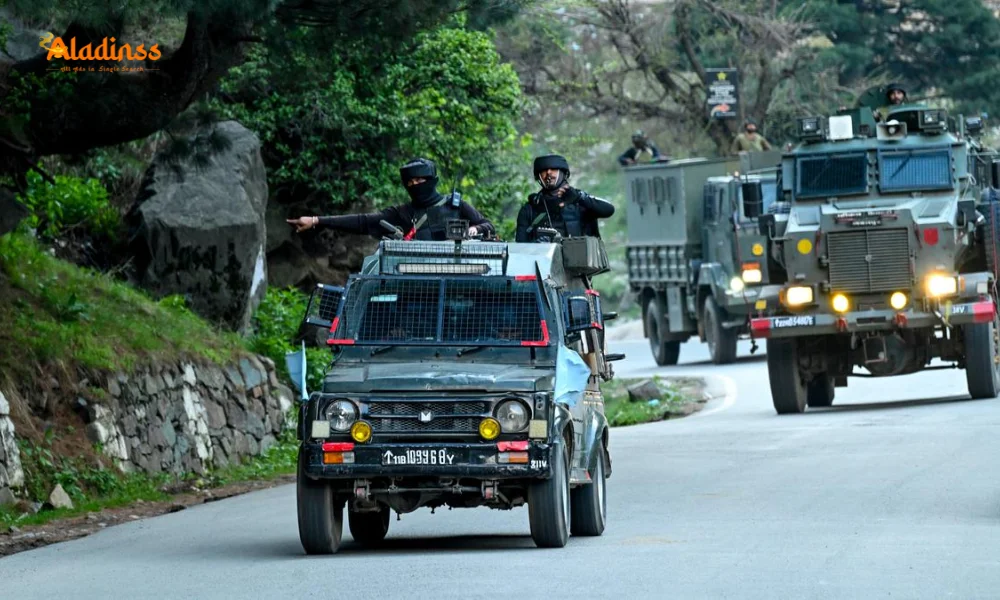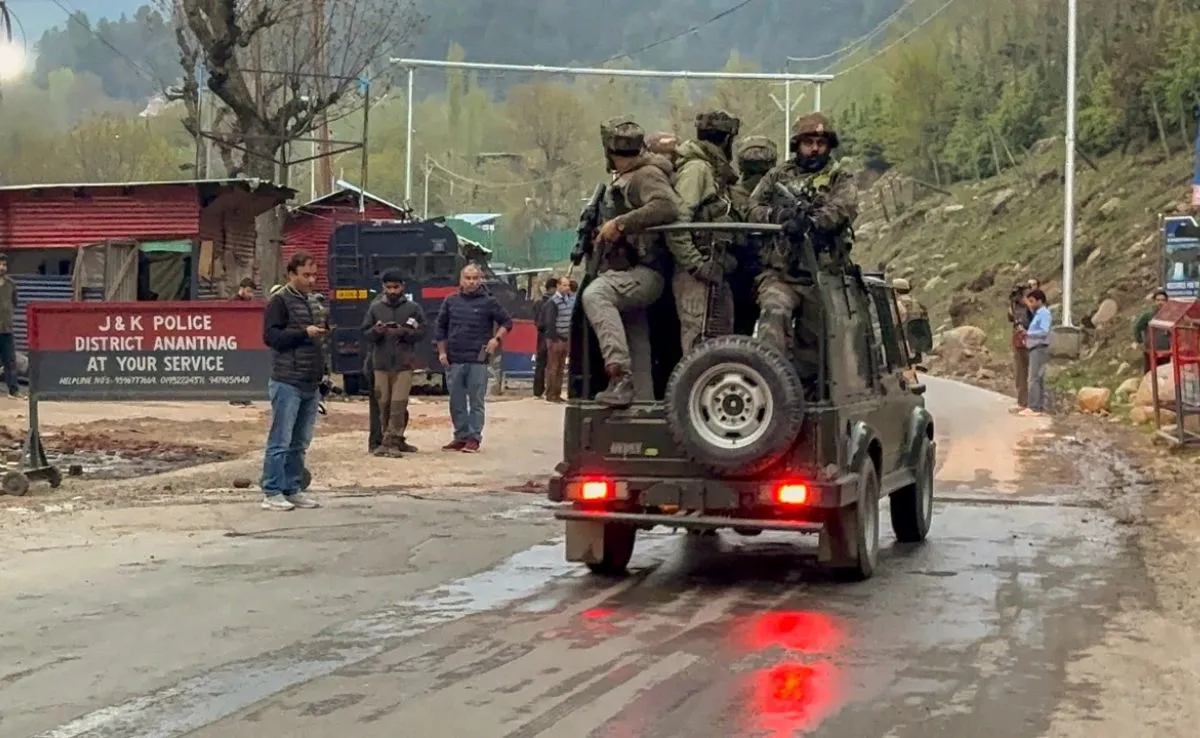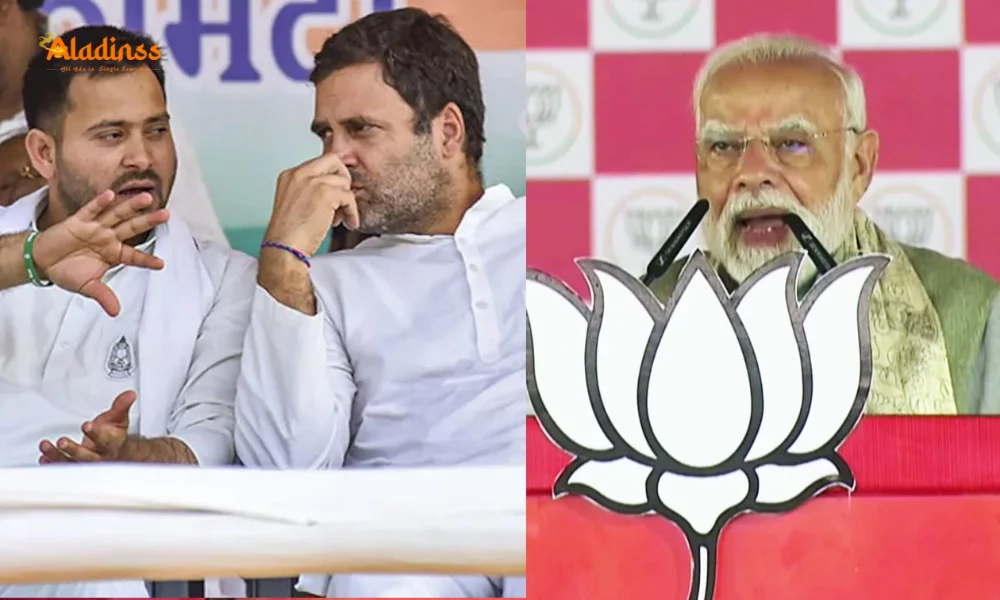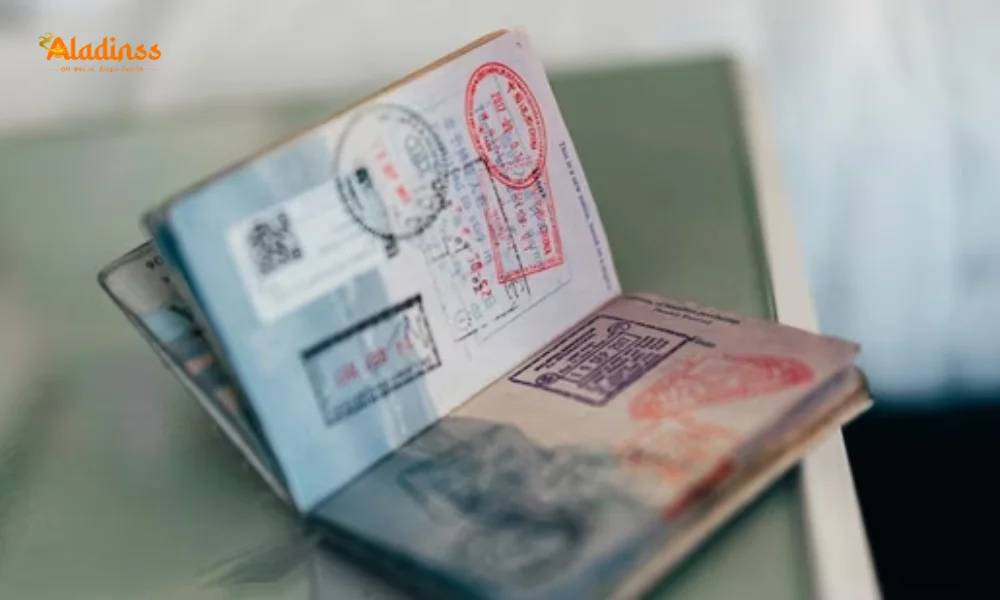NIA Exposes Pakistani LeT Involvement in Pahalgam Attack

NIA Cracks Pahalgam Terror Case: Arrested Locals Expose Pakistani LeT Killers
In a stunning breakthrough in the Pahalgam terror attack investigation, the National Investigation Agency (NIA) has successfully extracted critical confessions from two local facilitators arrested in June. The accused have now revealed the identities of the Pakistani terrorists behind the brutal April 22 massacre that claimed 26 innocent lives. This development marks a pivotal moment in India’s fight against cross-border terrorism and sends a strong message to terror networks operating from Pakistan.
The Ministry of Home Affairs (MHA) has further intensified its resolve by appointing senior advocate Shri Singh as the Special Public Prosecutor to lead the prosecution in the Pahalgam attack case. This strategic move ensures swift justice for the victims and their families while reinforcing the government’s zero-tolerance policy toward terrorism in Jammu and Kashmir.

Local Facilitators Spill Secrets: Pakistani LeT Operatives Named
The two arrested locals — Parvaiz Ahmad Jothar from Batkote and Bashir Ahmad Jothar from Hill Park, both in Pahalgam — were taken into custody in June following intensive NIA raids. Initially tight-lipped, sustained interrogation finally broke their silence. Sources confirm that both individuals admitted to providing logistical support, shelter, and reconnaissance to the Pakistani Lashkar-e-Taiba (LeT) terrorists before and after the deadly ambush.
According to NIA officials, the duo disclosed the full identities of the four-member hit squad, all confirmed Pakistani nationals trained and dispatched by LeT commanders based across the border. This revelation establishes an irrefutable link between local overground workers (OGWs) and Pakistan’s state-sponsored terror infrastructure.
“This is a game-changing disclosure,” a senior NIA officer told reporters on condition of anonymity. “We now have names, photographs, and communication trails that directly tie the attackers to LeT handlers in Muzaffarabad and Lahore. The investigation is rapidly closing in on the remaining module members.”
MHA Appoints Special Prosecutor: Justice on Fast Track
In a parallel development, the Ministry of Home Affairs has appointed Shri Singh, Advocate, as the Special Public Prosecutor (SPP) to exclusively handle the Pahalgam terror attack trial. Known for his impeccable track record in high-profile terror cases, Shri Singh’s appointment signals the government’s intent to secure airtight convictions without procedural delays.
The SPP will oversee all legal proceedings, from chargesheet filing to witness examination and final arguments. Legal experts believe this move will expedite the trial in the NIA special court, potentially concluding within 18 months — a rarity in complex terror prosecutions.
The NIA is expected to file a comprehensive chargesheet within the next 30 days, incorporating digital evidence, forensic reports, financial trails, and the confessions of the arrested locals. The agency has also seized mobile devices, SIM cards, and GPS data that corroborate the terrorists’ movements in the days leading up to the attack.
April 22 Massacre: A Day Kashmir Will Never Forget
The Pahalgam terror attack unfolded on the afternoon of April 22, 2025, when four heavily armed LeT militants opened indiscriminate fire on tourist vehicles near the scenic Baisaran Valley, locally known as “Mini Switzerland.” The victims included women, children, and elderly pilgrims from Uttar Pradesh, Gujarat, and West Bengal.
Eyewitnesses described scenes of horror as bullets shattered windshields and panicked families ran for cover. Security forces rushed to the spot within 20 minutes, but the terrorists had already melted into the dense pine forests, using pre-scouted escape routes provided by local facilitators.
The attack not only claimed 26 lives but also left 16 others critically injured, many requiring amputations and long-term rehabilitation. The incident triggered nationwide outrage and prompted the government to launch Operation Clean Valley, a multi-agency counter-terror offensive across south Kashmir.
How Local OGWs Enabled the Attack: A Chilling Timeline
Investigators have reconstructed the terror module’s operations over a three-month period leading to the attack:
- January 2025: LeT handlers recruit Parvaiz and Bashir through encrypted apps.
- February–March: Locals arrange safe houses and conduct area familiarization for incoming terrorists.
- April 15–20: Pakistani militants infiltrate via Kupwara sector; sheltered in Pahalgam.
- April 21: Final reconnaissance of tourist convoy routes.
- April 22: Attack executed; terrorists exfiltrate with local help.
The NIA has recovered WhatsApp chats, voice notes, and money transfer receipts (via hawala) that expose the full extent of local complicity. Both arrested individuals received payments ranging from ₹50,000 to ₹1.2 lakh for their roles.
NIA’s Multi-Pronged Hunt for Remaining Terrorists
With identities now confirmed, the NIA has launched a manhunt across Jammu and Kashmir, Punjab, and Delhi. Joint teams with the Indian Army and CRPF are conducting cordon-and-search operations in Tral, Awantipora, and Shopian — known LeT strongholds.
Drone surveillance, signal intelligence, and human informants are being deployed round-the-clock. The agency has also issued Red Corner Notices through Interpol for two LeT commanders believed to be hiding in PoK.
“We are leaving no stone unturned,” the NIA spokesperson stated. “Every lead from the confessions is being pursued with urgency. The module will be dismantled completely.”
Nation Demands Justice: Will Pakistan Face Consequences?
The Pahalgam terror attack has reignited calls for diplomatic and economic isolation of Pakistan. Political leaders across party lines have demanded that evidence of state complicity be presented at the United Nations and Financial Action Task Force (FATF).
Families of the victims have announced plans to file cases in international courts, citing Pakistan’s violation of UN resolutions on counter-terrorism. Meanwhile, tourism in Kashmir has plummeted by 70% in the aftermath, dealing a severe blow to local livelihoods.
The NIA’s breakthrough offers hope that justice is within reach. As the noose tightens around the terror network, India watches closely — determined that the sacrifices of April 22 will not be in vain.
Comment / Reply From
No comments yet. Be the first to comment!











